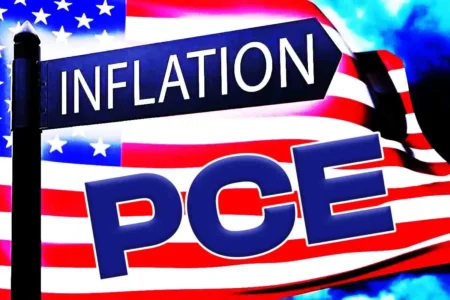Trump Tariffs: Implications of Recent Court Ruling and Future Outlook
In recent developments surrounding the Trump administration’s tariffs, White House Adviser Kevin Hassett has made headlines by commenting on the ruling from a Federal Court against these tariffs. Hassett believes the court’s decision represents an overreach of judicial power and is optimistic that the ruling will be overturned when the Trump administration files an appeal. This perspective sheds light on the ongoing complexities of trade negotiations and their implications for future economic policies.
Overview of the Federal Court’s Ruling
The US Trade Court recently ruled that President Trump exceeded his authority under the International Emergency Economic Powers Act (IEEPA) by imposing reciprocal tariffs. This ruling raises questions about presidential powers concerning trade and economic policy. Hassett’s confidence in the appeal process indicates the administration’s readiness to contest judicial interpretations that it perceives as limiting executive power. He emphasized the administration’s commitment to forging ahead with trade negotiations despite the setback, highlighting their significance for American economic interests.
Anticipated Outcomes of Trade Negotiations
During an interview with Fox Business, Hassett expressed that the ongoing trade negotiations have been beneficial for the American populace, indicating that the administration is close to finalizing three critical trade deals. He criticized both the judicial system and public dissent against the tariffs, pointing out that the benefits of these negotiations are worth the current challenges. Hassett’s assertions suggest a strategic focus on enhancing trade relations, particularly with major economies like the European Union and India, despite potential judicial limitations.
International Reactions to the Tariff Ruling
The Federal Court’s decision did not go unnoticed internationally. In a diplomatic reaction, China’s Commerce Ministry commended the ruling, advocating for the complete elimination of Trump tariffs. The spokeswoman, He Yongqian, stated that ongoing trade conflicts are counterproductive, detrimental to global trading systems, and ultimately harm American consumers. This sentiment was echoed across the border, where Canadian Prime Minister Mark Carney welcomed the ruling, reflecting concerns about the 25% tariffs impacting Canadian imports.
The Broader Impact on Global Trade Relations
The ramifications of the court’s ruling extend beyond US borders, as trade relationships and economic policies across various nations will be influenced by the unfolding situation. Potential negotiations with the EU are on the horizon, aimed at averting a proposed 50% tariff on imported goods. Meanwhile, reports of positive progress in trade talks with India indicate a broader tendency towards diplomatic resolutions, which may reinforce economic ties and stabilize markets amid uncertainty.
Market Reactions and Future Speculations
Experts within the financial community have weighed in on the complexities surrounding these tariff policies. Anthony Scaramucci, a former White House communications director, expressed uncertainty about the future of tariff collections, taking into account the government’s appeal following the ruling. Market analysts are closely monitoring these developments, considering how judicial rulings can significantly affect trade dynamics and economic forecasting.
Conclusion: Navigating the Path Ahead
As the Trump administration prepares for the appeals process, the impact of recent court rulings on tariffs will likely remain a hot topic. The administration’s willingness to engage in trade negotiations signifies a determination to uphold economic interests. Reflecting on the sentiments expressed by various stakeholders, it becomes evident that both domestic and international landscapes are deeply intertwined in the ongoing discourse on tariffs, trade negotiations, and the broader implications for global commerce. Whether the appeal will succeed remains to be seen, but the dialogue around tariffs continues to shape the economic landscape, warranting close attention as developments unfold.
















